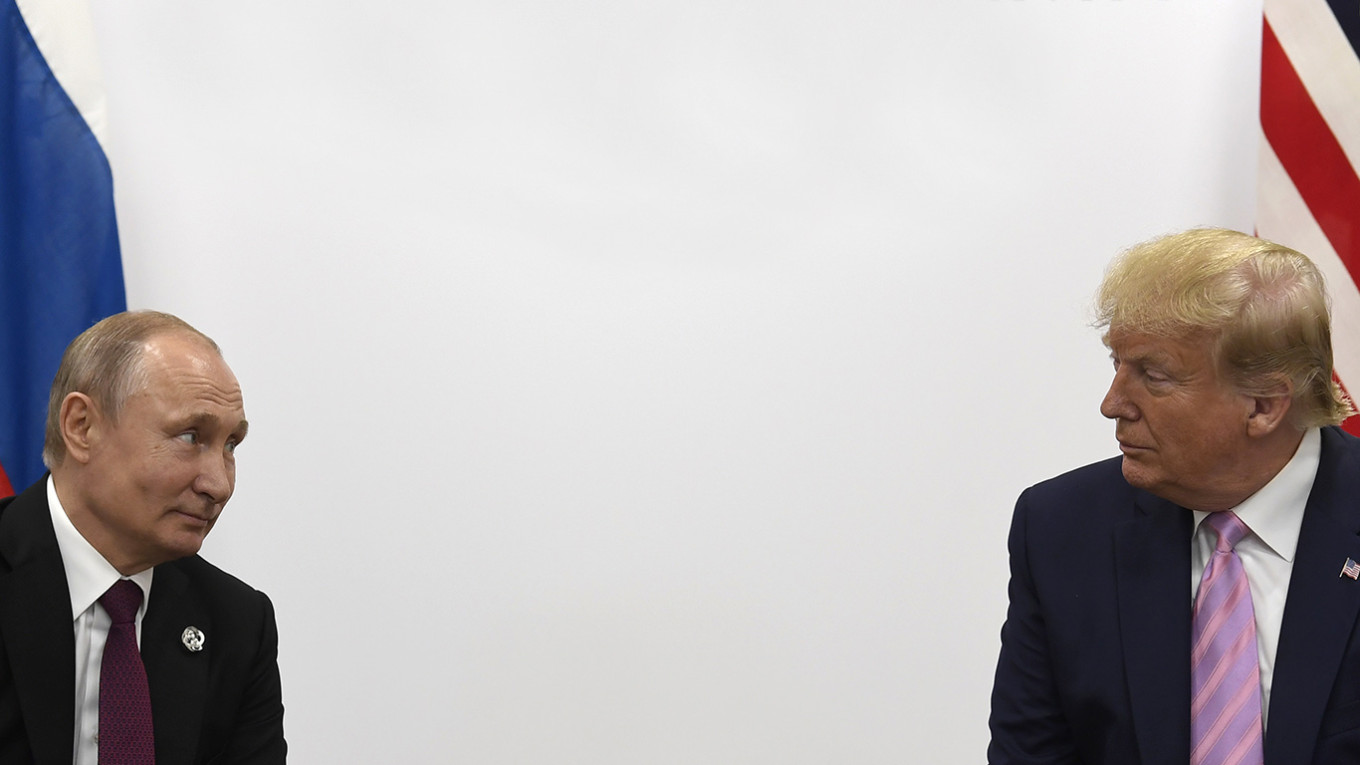“I just had a lengthy and highly productive phone call with President Vladimir Putin of Russia,” President Donald Trump wrote in a post on his social media platform Truth Social, recounting how they had spoken of exchanging visits and bringing the war in Ukraine to an end. “We have also agreed to have our respective teams start negotiations immediately,” he added.
The Russian readout claimed that Putin “supported” Trump’s view that “the time has come for our two countries to work together.”
Europe reacted with barely concealed dismay. The EU’s top diplomat Kaja Kallas reaffirmed her support for Ukraine, noting that the Europeans were “looking forward to discussing the way ahead together with our American allies.”
President Volodymyr Zelensky of Ukraine was plainly humiliated, with Trump promising to “inform” him of his talks with Putin. He had long insisted that the only way to bring this war to an end was to speak to Putin from a position of strength. But there was little strength in Trump’s rambling announcement — only hubris.
Putin would relish a summit with Trump, preferably in Moscow, perhaps around the time of the 80th anniversary of Russia’s Victory Day celebrations in early May. He has long sought a direct engagement with Washington that would effectively sideline Europe and, crucially, Ukraine. A summit would allow him to reassert Russia’s place as a global power on par with the U.S. It would be, in Putin’s mind, a return to the kind of recognition Russia enjoyed in 1945, when Josef Stalin parleyed with Franklin D. Roosevelt in Yalta about the fate of nations and the shape of Europe.
But there would have to be an agreement on ending the war in Ukraine, or else the summit would fail. What would such an agreement look like? Putin’s demands are clear, and they would require significant concessions from the United States — concessions that, if granted, would leave Ukraine adrift and at Russia’s mercy.
The first item on Putin’s wish list would be the recognition (including by Ukraine) of Russia’s territorial gains. He would insist on keeping all the territories Russia currently occupies, as well as those he has formally annexed but not yet fully controls. This is a prospect Zelensky has repeatedly rejected. It goes without saying that Ukraine would be asked to withdraw from Kursk, which it invaded, to dubious benefit, some months ago.
Equally important would be Ukraine’s formal, permanent neutrality. This was a major sticking point during the Istanbul negotiations in the spring of 2022. At the time, Ukraine sought real security guarantees to prevent future Russian aggression. Russia, however, insisted on a mechanism that would allow it to be consulted — and potentially veto — any Ukrainian request for external assistance.
Putin would likely agree only to meaningless guarantees — ones that could not be effectively invoked if Russia were to launch another attack. As in Istanbul, he would want to leave Russia and its potential partners (like China and Belarus) in a position to veto any Ukrainian request for external assistance. For that reason, it is very doubtful that Putin would ever agree to a European peacekeeping contingent to enforce the agreement.
Would Trump agree to such a framework? If he did, it would amount to a betrayal of Ukraine and would leave the country defenseless against future aggression.
The second point would be Putin’s insistence on Ukraine’s demilitarization. What this means can be gleaned from Russia’s proposals in Istanbul, which called for Ukraine’s army to be cut back to 85,000 troops (i.e. a fraction of its current strength), with severe limits put in place on the types and the quantities of arms a neutral Ukraine would be permitted. Would Trump agree? There is no reason why he should, but nor is there any indication that Putin would back down.
None of this is likely to sell in Kyiv, which is how we come to the third point. Any such agreement between the U.S. and Russia would almost certainly require the removal of Zelensky from power. Putin sees Zelensky as a personal adversary, someone who has repeatedly defied and humiliated him. The Russian leader would want a more pliable government in Kyiv — one that could be easily manipulated from Moscow. This was his original plan for what he still calls a “special military operation,” before it was bravely thwarted by the Ukrainians. He has since repeatedly alluded to Zelensky’s supposed lack of electoral legitimacy.
Is it altogether inconceivable that Trump would betray Zelensky? It is difficult to say, but our times hold a record for inconceivable things coming to pass. Needless to say, any such a deal behind Kyiv’s back would fracture U.S. relations with Ukraine and Europe.
Fourth: One often-overlooked but deeply significant issue for Putin is the control of Ukraine’s language policies and historical memory laws. During the Istanbul talks, Russian negotiators pushed hard for changes to specific legislation — something that, if agreed to, would further erode Ukraine’s sovereignty and enforce a narrative that aligns with Russian imperial ambitions. This aspect of negotiations should not be underestimated, as it reveals the depth of Putin’s desire not just to conquer but to control Ukraine.
Fifth: Putin will seek relief from sanctions. Although the Russian economy proved to be more resilient than many have expected, it is still under serious strain. Putin would welcome reprieve. This is one where Trump has some real negotiating advantages, which the American president referred to in his aforesaid post when he claimed he and Putin discussed “the power of the dollar.” The real question is whether Russia’s economic difficulties are severe enough to force serious concessions from Putin who has already shown a willingness to sacrifice his people’s economic well-being for the sake of national glory.
Given what we know about Trump’s haphazard diplomacy, it is all too probable that he did not deign to consult with, or even inform, America’s European allies of his talks with Putin. That unpleasant task will probably fall to Vice President JD Vance who is currently in Europe, presumably in part to communicate his boss’s strategic vision to the weary Europeans, who seem to know less about Trump’s plans than Putin does.
This is no mean achievement for the Russian ruler. He aims to negotiate with the U.S. over the heads of Europe and Ukraine, reinforcing the notion that Russia and America are equals and can work jointly to solve pressing issues. In my recent book, “To Run the World,” I show how this notion of a Moscow-Washington condominium, with a special role for Moscow in what was then called its “sphere of influence,” was never far from the minds of the Soviet leaders. Putin has followed in the footsteps of his predecessors.
During the Cold War, U.S. policymakers were far too clever to give in to such schemes. But today, who can tell?
A Message from The Moscow Times:
Dear readers,
We are facing unprecedented challenges. Russia's Prosecutor General's Office has designated The Moscow Times as an "undesirable" organization, criminalizing our work and putting our staff at risk of prosecution. This follows our earlier unjust labeling as a "foreign agent."
These actions are direct attempts to silence independent journalism in Russia. The authorities claim our work "discredits the decisions of the Russian leadership." We see things differently: we strive to provide accurate, unbiased reporting on Russia.
We, the journalists of The Moscow Times, refuse to be silenced. But to continue our work, we need your help.
Your support, no matter how small, makes a world of difference. If you can, please support us monthly starting from just $2. It's quick to set up, and every contribution makes a significant impact.
By supporting The Moscow Times, you're defending open, independent journalism in the face of repression. Thank you for standing with us.
Remind me later.








